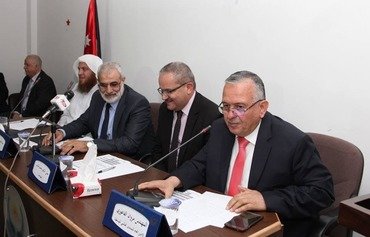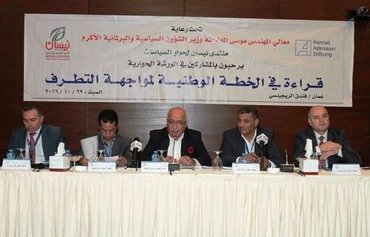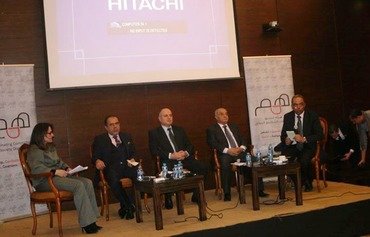Military victories over the "Islamic State of Iraq and Syria" (ISIS) must be followed with a strategy and policies that address the root causes of extremism, speakers at the Amman Forum on Countering Violent Extremism said last week.
The one-day forum, held in Amman on October 9th, was hosted by the Jordan Military Centre for Counter Terrorism and Extremism (MCCTE) and sponsored by Spirit of America, in co-ordination with the US embassy.
The event attracted officials, academics, business leaders and civil society representatives from Jordan and around the world, who came together to exchange best practices and lessons learned in countering violent extremism.
“There is a need for ongoing actions and efforts to combat violent extremism and radical ideologies, which leads to terrorist acts,” said Brig. Gen. Abdullah Shdaifat, commander of Jordan's National Defence College.
Jordan has suffered the consequences of violent extremism for many years, he reminded conference participants, and has lost hundreds to the fight.
“There is a need for policies and strategies to strengthen the principles of moderation and tolerance to protect future generations", he said.
"The conference comes on the heels of successive field and geopolitical defeats dealt to terrorist gangs in the regional environment," he said, noting that these defeats "do not necessarily mean the end of the gangs and their extinction".
Combating these groups calls for concerted and intensive regional and international efforts to develop a global strategy with clear and specific objectives to fight violent extremism, he said.
"Clearly defined policies must be developed, and regional and international co-operation must be strengthened in order to combat extremism," he added.
Addressing social issues
"Tackling poverty and unemployment and combating corruption are among the most important and effective ways to combat extremism," strategy analyst and retired military officer Maj. Gen. Adeeb al-Sarayreh told Al-Mashareq.
"Terrorist groups are exploiting and taking advantage of the difficult circumstances and lack of hope among the youth to recruit them," he said.
It is therefore necessary to focus greater attention on young people and to find tangible solutions to the problems they face in order to make a difference in the fight against terrorism, he said.
The recruitment of young people by extremist groups is a matter that must be given attention in any counter-extremism strategy that is developed, sociology professor Hussein al-Khuzai told Al-Mashareq.
When it comes to youth recruitment, he said, extremist groups distort religious texts and take them out of context to serve their own purposes.
"Terrorist groups rely on youth to recruit other youth among their relatives and friends," he said, which they do by twisting religious texts to accuse them of being kuffar (unbelievers) and exerting pressure on them in that way.
Extremists also prey on the emotions of young people by producing and disseminating videos and other media that aim to stir up their religious sentiments and exploit their poor understanding of true religion, he said.
This kind of content is pervasive and plants toxic ideas in their heads, he added.
Their corrosive ideology is based on exploiting ignorance and hopelessness, so they promote the notion that they seek to build an ideal state, he said, while in fact they seek to destroy both people and countries.
Families in many countries are struggling with the fallout of these manipulative recruitment tactics, he said, and have lost their children at tender ages as a result of these misleading and distorted narratives.
Al-Khuzai called for action plans to be developed that specifically target young people, to keep them from making mistakes that could cost them their future, and possibly their lives as well.
Media play a key role
Media will play the most important role in the next stage of the fight to stamp out extremism, as the next phase of the battle will be "a war of thought and ideology", media expert Omar Maharma told Al-Mashareq.
After ISIS's military defeat, "it is the media who now lead the fight by raising awareness, disseminating the moderate ideas of tolerance and rejection of violence and barbarity, and exposing the terrorists’ plots and aims", he said.
"The media must focus in the coming period on the causes for the spread of these extremist ideas, and address them in co-operation with the relevant authorities," he added.
He cautioned that since their defeat in the field, some extremists have gone underground, forming sleeper cells that could pose a future threat.
The presence of extremist sleeper cells necessitates the continuation of awareness-raising campaigns that address violent extremism, al-Sarayreh said.
He stressed the importance of conducting these campaigns on social media, noting that extremist groups have been exploiting these platforms to attract new recruits and disseminate their extremist ideology.

![Spirit of America chief operating officer Isaac Eagan speaks at the October 9th Amman Forum on Countering Violent Extremism. [Photo courtesy of the Amman Forum]](/cnmi_am/images/2018/10/18/14887-Jordan-Amman-conference-600_384.jpg)






